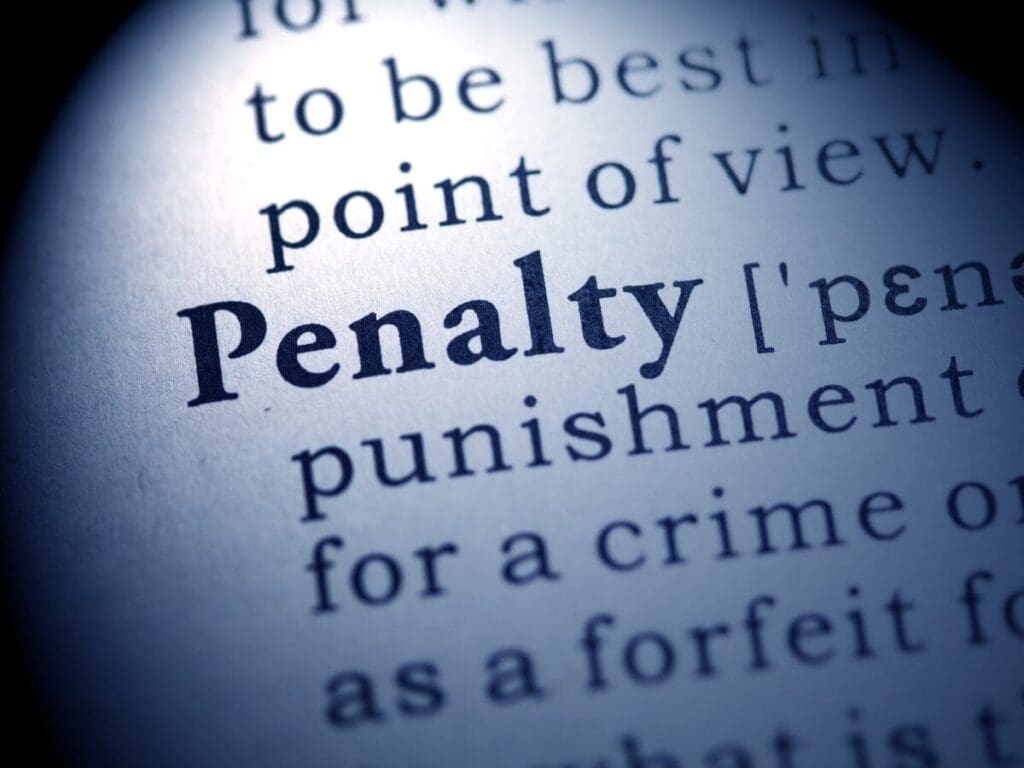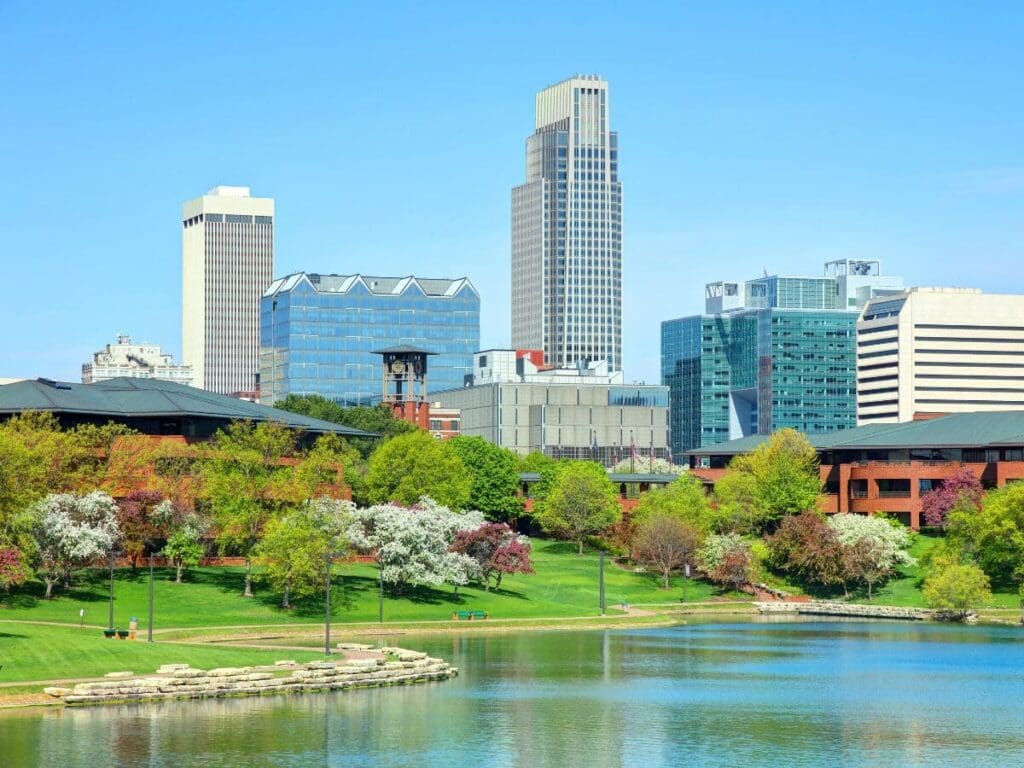Key Takeaways:
- Nebraska’s Stance on Delta 8: Delta 8 THC is currently illegal in Nebraska, despite federal legalization of hemp-derived products.
- Legal Consequences: Possession, sale, or purchase of Delta 8 THC in Nebraska can result in fines, jail time, or other penalties.
- Future Uncertainty: There is no current movement to legalize Delta 8 in Nebraska, but national trends may influence future changes.
Is Delta 8 THC legal in Nebraska? The laws surrounding cannabis-related products can be confusing, especially when federal and state regulations don’t always align. As Delta 8 grows in popularity, understanding its legal status in Nebraska becomes crucial.
At Happy Hemp, we are proud to lead the market in premium, high-quality Delta 8 products. Known for rigorous testing, sustainable sourcing, and exceptional customer service, we ensure that every product offers a safe and enjoyable experience.
In this article, we’ll explore Nebraska’s legal stance on Delta 8.
What Is Delta 8 THC?
Delta 8 THC, short for delta-8-tetrahydrocannabinol, is a naturally occurring compound found in cannabis plants. It is one of the many cannabinoids, similar to the more well-known delta-9 THC, which is responsible for the psychoactive effects in marijuana. However, delta-8 THC has a slightly different chemical structure, leading to milder effects when consumed.
While delta-8 THC produces a high, it’s often described as less intense and more clear-headed compared to delta-9 THC. Users typically report experiencing relaxation, euphoria, and a sense of calm without the anxiety or paranoia that can sometimes accompany delta-9 THC. Because of these qualities, delta 8 has gained popularity, especially in states where recreational marijuana use remains restricted.
Looking for high-quality Delta 8 gummies? Happy Hemp offers rigorously tested, premium Delta 8 products that ensure safety and enjoyment. Explore our selection today and experience the benefits of top-tier Delta 8 gummies!
Federal vs. State Law: How Does Delta 8 Fit In?
The legal status of Delta-8 THC is a subject of significant debate and complexity. This cannabinoid exists in a legal gray area, as federal and state laws can vary greatly in how they approach its regulation. While the federal government has made strides to clarify the legality of hemp-derived products, individual states maintain the right to establish their own rules, leading to a patchwork of differing legal frameworks. Understanding how Delta-8 fits into both federal and state law is crucial for consumers and businesses alike.
The Federal Legal Framework For Delta-8 THC
At the federal level, Delta-8 THC derives its legal status from the 2018 Farm Bill, which legalized hemp and its derivatives as long as they contain less than 0.3% Delta-9 THC. Since Delta-8 is often synthesized from hemp-derived CBD, it falls within the technical scope of the Farm Bill’s definition of legal hemp products. However, the federal legality of Delta-8 is not without challenges, as some agencies have raised concerns over its psychoactive effects and the methods used to produce it.
The Role Of The 2018 Farm Bill
The 2018 Farm Bill plays a pivotal role in Delta-8’s legal status. By differentiating hemp from marijuana based on Delta-9 THC content, the bill legalized all hemp derivatives, including cannabinoids like Delta-8. The language of the bill opened the door for Delta-8 products to be sold across the country. However, this legislation does not explicitly address Delta-8, leading to confusion and differing interpretations.
How States Are Responding To Delta-8 THC
State laws vary widely in their approach to Delta-8. While some states have fully embraced the product, others have placed restrictions or outright bans due to concerns over its psychoactive effects. The lack of regulatory oversight at the federal level has left states to fill the gaps, resulting in a patchwork of rules that can be difficult for consumers and businesses to navigate. For example, states like Texas have embraced Delta-8, while others like New York and Colorado have moved to restrict or ban its sale.
States That Have Banned Delta-8 THC
A growing number of states have taken a hard stance against Delta-8. These states argue that Delta-8’s psychoactive properties, combined with a lack of federal oversight, pose a public health risk. As a result, states such as Alaska, Idaho, and Utah have chosen to ban Delta-8 products altogether. These states typically treat Delta-8 in the same way they regulate Delta-9 THC, which remains illegal at the federal level.
States That Allow Delta-8 THC
In contrast, several states have chosen to allow Delta-8 under specific regulatory conditions. States such as Florida and Texas permit the sale of Delta-8 products, provided they meet certain labeling and safety requirements. These states view Delta-8 as a legal hemp derivative under the 2018 Farm Bill, but they may still introduce restrictions to ensure consumer safety, such as requiring lab testing or clear product labeling.
The Future Of Delta-8’s Legal Status
The legal future of Delta-8 remains uncertain. As more states take steps to regulate or ban the substance, and as federal agencies like the FDA continue to scrutinize its safety and production, the legal landscape may shift dramatically in the coming years. For now, businesses and consumers must stay informed about both federal guidelines and individual state regulations to ensure they remain compliant with the law.

Is Delta 8 Legal In Nebraska?
As of now, Delta 8 THC is not considered legal in Nebraska. Nebraska’s laws regarding cannabinoids are stricter compared to federal regulations. Although the 2018 Farm Bill legalized hemp-derived products, Nebraska has its own Controlled Substances Act, which does not clearly exempt delta-8 THC from being classified as an illegal substance.
The Nebraska Attorney General issued a statement in 2021 explicitly stating that delta-8 THC is a Schedule I controlled substance under Nebraska law. This means that the sale, possession, and use of delta-8 THC are considered illegal in the state, despite its federal status under the Farm Bill.
Changes In Nebraska Law Regarding Delta 8
Nebraska’s cannabis laws have experienced some shifts in recent years, primarily focusing on the cultivation and processing of hemp and CBD rather than psychoactive cannabinoids like Delta-8 THC. Although the federal legalization of hemp through the 2018 Farm Bill opened the door for changes in state law, Nebraska has remained cautious in its approach, particularly regarding any cannabinoid with psychoactive effects. This cautious stance is reflected in the state’s ongoing classification of Delta-8 as an illegal substance, despite a growing movement advocating for cannabis reform.
Nebraska’s Response To The 2018 Farm Bill
After the passage of the 2018 Farm Bill, Nebraska enacted the Nebraska Hemp Farming Act in 2019, allowing for the legal cultivation and processing of hemp for non-psychoactive products like CBD. This legislation aligned with the federal definition of hemp as containing less than 0.3% Delta-9 THC, creating opportunities for hemp farmers and producers within the state. However, this law did not extend to psychoactive cannabinoids like Delta-8 THC, which remains strictly prohibited.
Nebraska Hemp Farming Act And Its Limitations
The Nebraska Hemp Farming Act was designed to promote the hemp industry in the state, but it imposed clear boundaries. While it legalized hemp cultivation and CBD production, it did not cover cannabinoids with psychoactive effects, such as Delta-8 THC. As a result, Delta-8 remains a controversial and illegal substance under Nebraska law, despite being derived from hemp. This distinction reflects Nebraska’s conservative approach to cannabis regulation.
Nebraska’s Firm Stance On Delta-8 THC
Nebraska has maintained a firm stance against any cannabinoid that produces psychoactive effects, including Delta-8 THC. Even though Delta-8 is chemically distinct from Delta-9 THC, the state treats them similarly under its laws. Law enforcement continues to classify Delta-8 products as illegal, with the state focusing on preventing the sale and distribution of such substances. This position mirrors Nebraska’s broader reluctance to embrace cannabis reform.
Legislative Resistance To Broader Cannabis Reforms
Despite multiple efforts to introduce broader cannabis reforms in Nebraska, including proposals to legalize medical marijuana or reduce penalties for cannabis-related offenses, lawmakers have largely resisted these changes. Advocates for reform have faced stiff opposition, with many legislators expressing concern about the potential public health and safety risks associated with psychoactive substances. As a result, Delta-8 remains illegal, and there are no immediate signs of regulatory shifts on the horizon.
The Impact Of Minimal Delta-8 Regulation
Nebraska’s minimal regulation of Delta-8 THC has left the state with a strict prohibition of the product, in contrast to other states that have developed specific rules for its sale and use. While some states have embraced Delta-8 under the framework of the 2018 Farm Bill, Nebraska’s resistance to regulating the product reflects its broader opposition to psychoactive cannabinoids. For now, businesses and consumers seeking Delta-8 must turn to other states where the product is legally available.
Penalties For Possessing Delta 8 In Nebraska
Because Delta 8 THC is classified as a Schedule I controlled substance in Nebraska, the legal penalties for possessing it are the same as for other forms of THC, including Delta-9. Possession of even small amounts of Delta 8 can lead to legal consequences, ranging from minor infractions to more severe criminal charges depending on the quantity involved and prior offenses.
Here are the penalties for possessing Delta 8 THC in Nebraska:
- Possession of Less Than One Ounce: First-time offenders caught with less than one ounce of Delta 8 THC face an infraction, which is punishable by a fine of up to $300. In addition to the fine, the individual must complete a mandatory drug education course. This is the most lenient penalty for THC possession in Nebraska.
- Possession of More Than One Ounce: If someone is found with more than one ounce but less than a pound of Delta 8, they can be charged with a Class III misdemeanor. This charge carries penalties of up to three months in jail, a fine of up to $500, or both, depending on the circumstances and the individual’s prior record.
- Possession of Over a Pound: Possession of more than a pound of Delta 8 THC escalates the charges to a felony. A felony charge can result in imprisonment, higher fines, and a permanent criminal record. The severity of the punishment depends on the amount possessed and other factors such as intent to distribute.
- Repeat Offenses: Repeat offenders who are caught with Delta 8 THC may face more severe penalties, even for smaller quantities. These may include elevated misdemeanor or felony charges, longer jail sentences, and higher fines. Prior convictions can significantly increase the legal consequences of subsequent offenses.

Final Thoughts
Delta 8 THC continues to exist in a legal gray area across the U.S., but in Nebraska, the state’s laws make its status clear—Delta 8 is illegal. While the federal government has opened the door for hemp-derived cannabinoids, Nebraska has chosen a stricter path, placing Delta 8 under the same regulations as other THC products. Anyone considering the use, purchase, or sale of Delta 8 in Nebraska should be aware of the state’s strict enforcement and the potential legal consequences.
As the conversation around cannabis evolves, it will be important to monitor any future changes to Nebraska’s laws. For now, however, Delta 8 remains off-limits in the state, and those interested in the product should seek legal alternatives that comply with local regulations.
Read also:
- The Role of CBD in Anxiety Management
- CBD for Insomnia: How It Can Improve Your Sleep Quality
- Boost Your Focus Naturally with CBD
Frequently Asked Questions About Delta 8 Legality In Nebraska
Is Delta 8 legal for medical use in Nebraska?
No, Nebraska does not differentiate between recreational and medical Delta 8 THC; it is illegal for all uses in the state.
Can I buy Delta 8 THC online in Nebraska?
Although you can find Delta 8 online, shipping it into Nebraska is illegal and can result in legal consequences.
What is the difference between Delta 8 and CBD in Nebraska’s laws?
CBD is legal in Nebraska if derived from hemp with less than 0.3% THC, while Delta 8 THC is illegal due to its psychoactive effects.
Are there any upcoming bills to legalize Delta 8 in Nebraska?
Currently, there are no active legislative efforts specifically aimed at legalizing Delta 8 THC in Nebraska.
What are the federal penalties for shipping Delta 8 into Nebraska?
Though federally legal under the 2018 Farm Bill, shipping Delta 8 into Nebraska violates state law and could lead to state-level legal consequences.
Can law enforcement test for Delta 8 THC during a traffic stop in Nebraska?
Yes, law enforcement can test for THC in general, and Delta 8 could show up in drug tests similarly to Delta 9.
Is Delta 8 considered a controlled substance in Nebraska?
Yes, Delta 8 THC is classified as a Schedule I controlled substance in Nebraska, meaning it’s illegal to possess or sell.
Can I use Delta 8 gummies as a prescription alternative in Nebraska?
No, Delta 8 THC is not recognized as a legal alternative for medical conditions in Nebraska, regardless of form.
Will possessing Delta 8 affect my ability to apply for jobs in Nebraska?
Yes, as Delta 8 is illegal, it could lead to criminal charges, which may negatively affect employment opportunities.
Can Delta 8 be used for therapeutic purposes in Nebraska?
Despite its potential therapeutic benefits, Delta 8 is illegal in Nebraska for any purpose, including therapy.
Sources:
- Nebraska Marijuana Laws | NebraskaStateCannabis.org. (n.d.). Nebraska Cannabis Information Portal. https://nebraskastatecannabis.org/laws
- DISA. (2023, July 1). MARIJUANA LEGALITY BY STATE. DISA. https://disa.com/marijuana-legality-by-state
- Marijuana Policy Project. (2018). Nebraska. MPP; MPP. https://www.mpp.org/states/nebraska/







